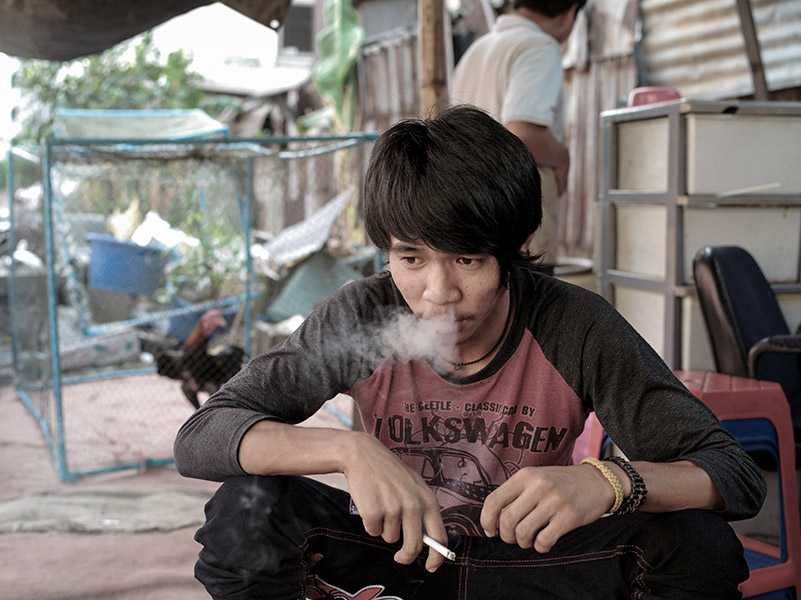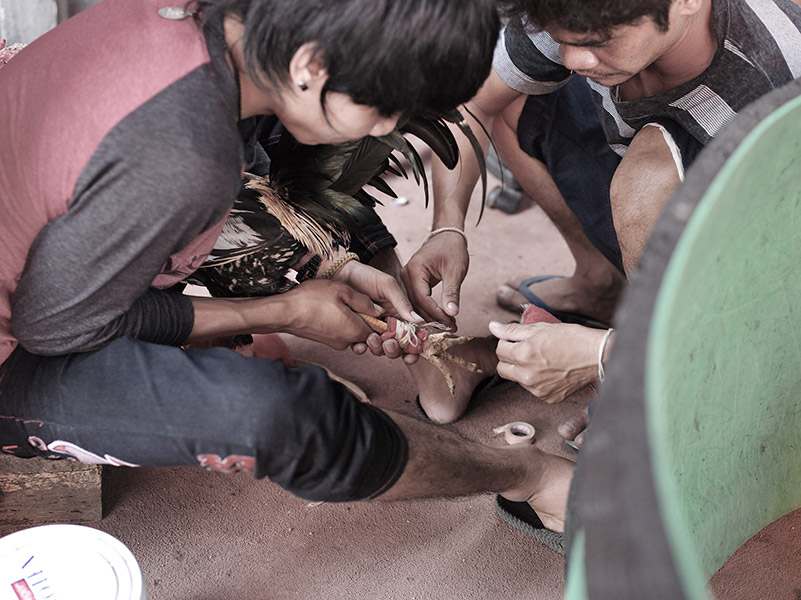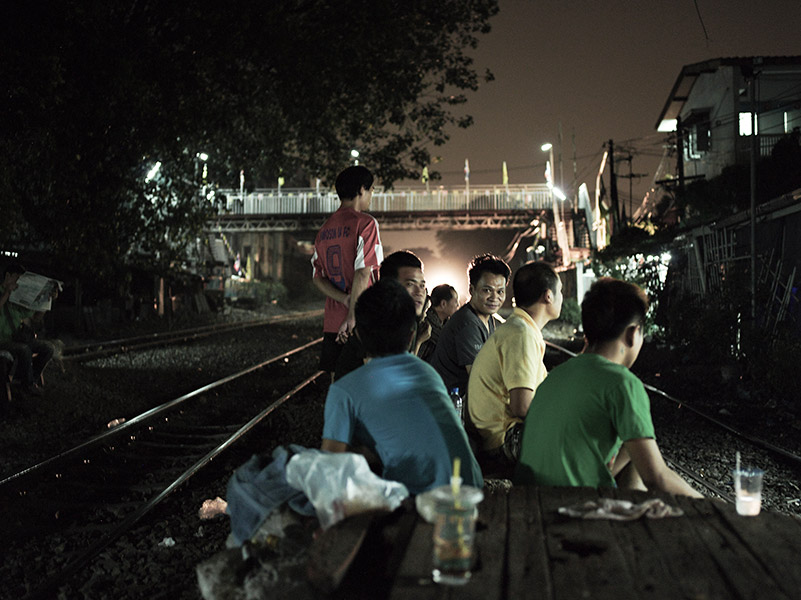A man lives on the tracks named Moo. Normally siderodromophobia, the fear of trains, keeps people far away from the steel and iron machines running unforgivingly across Thailand’s tropical landscape, but Moo’s blood runs the same oil as the locomotives. His piece of the railroad is no less his than as it is the trains as they pass every few minutes throughout the day. Children run across the tracks playing ever so carelessly, music blasts from the jukebox chained up next to the tracks, the colorful Thai-Chinese men drink their Hong Thong whiskey, but Moo is focused. Tonight is fight night for his prized Burmese and Laotian roosters and there is money to be made.
Moo is not alone. While Thailand is known for its shady massage parlors and soapy sex parties, there is a deep history of underground gambling buried in the city’s underbelly. Surrounded by families and school children, he and his colleagues prepare and wash the cocks for the weekly cockfight happening later tonight. Not only the ringleader of the fights, he is also the bookie.
“You can make 15,000 baht on a good night. That’s more money than most people here know what to do with,” Moo told me. “If your cock wins, if you’re lucky, you can win a lot of money. 15,000 buys a lot of beers, my friend.”
His closest trusted partner is a young man overly obsessed with smoking and scarred with bad tattoos spread randomly around his body. Preparing the cocks under harsh yet blunt criticism, he stays focused, washing the cocks in ‘special water’ and tying their feet, making sure they are fully ready for the bitterness of the fight ahead. Given the city’s rough history, the prevalence of bettors and gambling is not surprising. Betting in Bangkok is older than time, and to the small community of homes, restaurants, two gambling dens, kiosk, and other illegally built ‘buildings’ along the tracks, it is life day and night. If not for the money brought in from gambling here, life could not exist along these tracks.
The crackdown that nearly destroyed this small world a couple years ago happened not because of the illegal gambling that is a strong slap in the face to a city where bribes can buy you anything and the people are 95% Buddhist, but because of people getting hit by trains. The trains generally do not pass by quickly, but being as the make-shit seats and tables sit in the middle between the North and South-bound trains which nearly scrape the backs of the old wooden benches, it makes any protruding limb of a careless or intoxicated bystander an easy target for a passing train.
Still, most betters, children playing on the tracks, boys drinking after school, and the rest of the small community here see it as home. Many of the newer, as well as the older, generations were born here.
“If you grow up here, by the time you’re 15, 16 years old, you start to work here and gamble here; you know only this,” Moo told me. “The rest of Bangkok? Didn’t exist for me when I was 16. Doesn’t exist for me now. This is Bangkok. This is my Bangkok.”











